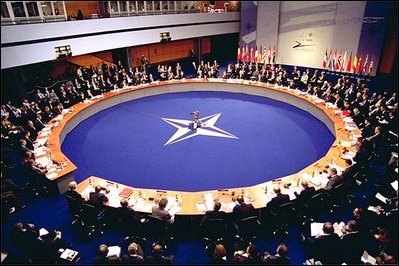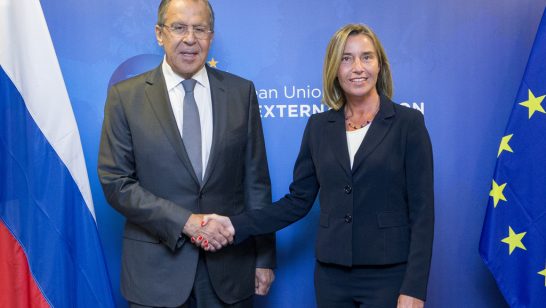
The NATO-Russia confrontation is likely to last for years. It is therefore in the interests of both parties to make relations more stable and less costly. Such efforts should not be seen as a reward but as a sensible precaution. Dialogue about risk reduction does not mean the acceptance of arguments of the other side.
This joint report by the European Leadership Network and the Russian International Affairs Council proposes how to make the confrontation safer. It offers practical, realistic, and politically viable recommendations distilled from discussions held in Moscow, NATO Headquarters and several NATO capitals on the art of the possible.
Feasible and implementable steps to reduce risks are in short supply, but a better controlled confrontation offers higher long-term chances of stability and progression. The common ground between Russia and NATO is limited; similarly the recommendations made in this report are limited, they are nonetheless important.
The report provides two sets of recommendations, one for immediate implementation and the other for future stabilised relations.
Elements for the first “basic dialogue and stabilisation menu” include:
- A more useful quality of dialogue: a more predictable rhythm of NATO-Russia Council meetings; more substantial Russian representation; more military-to-military communication channels; the use of the NATO-Russia hotline for cyber-incidents.
- More substance to dialogue: NATO to clarify the acceptable scope of contacts; Russia to address the credibility gap; both sides to use experts in the NATO-Russia Council for a risk reduction exercise and cyber advice.
- Extending dialogue beyond official contacts: non-official fora used for debate, simulations, generating ideas and better mutual understanding of narratives and history. Resume very limited parliamentary contact, and promote contacts between academic researchers and analysts.
Officials and experts from both sides agree such steps would modestly reduce the risks of misunderstanding, miscalculation and escalation as well as decrease the action-reaction pressure deepening the confrontation. Moreover, they may open political space for further stabilising efforts.
The second, more ambitious “enhanced set” of recommendations unfortunately seem to be unimplementable in the current environment of confrontation. Rather, they provide a pathway forward if basic steps can be implemented and the political environment improves.
These include:
- Enhancing quality of dialogue: a higher level NRC meetings and additional NRC formats on cyber and on military doctrines and postures;
- Adding more substance to dialogue: refresh the “rules of the road” in the relationship; take declaratory or clarificatory steps;
- Showing restraint on the ground: agree on transparency of sub-strategic nuclear postures; jointly consider a zone of increased transparency or reduced military activity;
- Developing a positive agenda: work on issues of mutual interest; return to cooperation on arms control; pursue joint Russian and Western non-governmental (Track 2) and semi-official (Track 1.5) projects and dialogues focusing on enhancing international security.
There are no shortcuts to restoring trust and ending the current confrontation, however it is in the interests of all that the relationship be built and managed in a way that reduces risk and costs. This report is grounded in reality and offers steps to deescalate tensions and prevent crises.
The report in Russian is available on the website of the Russian International Affairs Council
The opinions articulated above also do not necessarily reflect the position of the European Leadership Network or any of its members. The ELN’s aim is to encourage debates that will help develop Europe’s capacity to address pressing foreign, defence, and security challenge.



